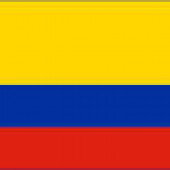Our website uses cookies so we can analyse our site usage and give you the best experience. Click "Accept" if you’re happy with this, or click "More" for information about cookies on our site, how to opt out, and how to disable cookies altogether.
We respect your Do Not Track preference.

I was honoured recently to speak at the 2nd Latin American International Data Protection Congress in Pereira, Colombia. Pereira is at the heart of Colombia’s famous coffee growing district and, like the rest of the country, is now a safe place to visit. Attendance was feasible as I was already booked to be in California at my own expense and the conference organisers met the additional costs to travel 5,500 km further south.
I spoke on a conference panel devoted to international developments affecting Latin America. My remarks touched upon the effects on New Zealand of the EU and APEC approaches to privacy, but my main focus on the recently completed project to update the 35-year-old OECD Privacy Guidelines (on which NZ’s privacy law is based).
The two-day conference had a packed schedule of international and local speakers with simultaneous translation from Spanish to English. One highlight for many delegates was to receive a first-hand account from the Spanish Data Protection Commissioner of the implications of the famous ‘right to be forgotten’ European court judgment, released just a week or so beforehand, which had arisen from litigation between his authority and Google. His message was that the judgment was narrower in its effects that was sometimes being reported, was practical to implement and could be reconciled with rights of freedom of expression.

This photo shows representatives of the data protection authorities from (L-R) Chile, Argentina, Uruguay, Mexico and Peru.
Particular value was gained by the opportunity the day before the Conference to attend a closed meeting of data protection authorities from the region. It was a good chance to cement existing connections, and make new ones, with the participating authorities from Argentina, Chile, Colombia, Mexico, Peru and Uruguay as well as Spain and the USA.
I spoke about New Zealand developments and provided updates on both the Asia Pacific Privacy Authorities Forum and the Global Privacy Enforcement Network. Many of the issues discussed in the closed meeting were familiar matters, such as government information sharing and teaching privacy rights in schools, with others having a uniquely Latin American feel, such as the data protection issues arising from DNA identification of victims of the Shining Path.
The visit was a useful opportunity to build bridges between the data protection regulatory approaches in different regions. The Office of the Privacy Commissioner acknowledges the travel assistance provided by the Colombian Superintendent of Industry and Commerce that made participation possible.
Back